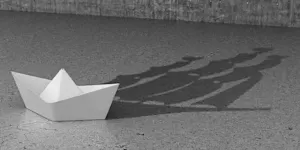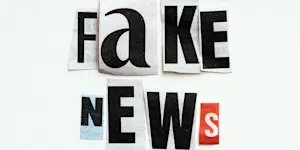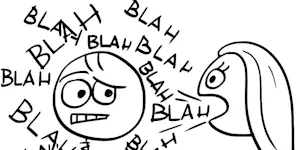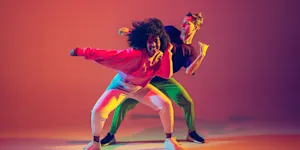What Makes This Word Tick
"Plotz" is a Yiddish word that embodies the essence of bursting with excitement or laughter — think of the way you can barely contain yourself after hearing a joke that tickles you just right or receiving unexpectedly wonderful news.
If Plotz Were a Person…
Imagine plotz as your exuberant neighbor, always wearing brightly colored clothes and gesturing wildly as they recount stories, their laughter contagious and ever ready to explode into a full-blown guffaw at the drop of a hat.
How This Word Has Changed Over Time
Originally, "plotz" carried with it a more dramatic sense of dropping from exhaustion. It's evolved over the years to mean bursting with laughter or excitement, shedding some of its original intensity for a more joyful connotation.
Old Sayings and Proverbs That Use Plotz
Though there aren’t any traditional proverbs that use "plotz," it certainly matches the exuberance of expressions like "burst at the seams," capturing the delight of uncontainable emotions.
Surprising Facts About Plotz
"Plotz" has traveled from the bustling streets of Eastern Europe into American humor and vernacular, making cameo appearances in both the old-time Borscht Belt comedy routines and modern television sitcoms.
Out and About With This Word
You might find "plotz" being joyously tossed around at a family reunion, perhaps when Uncle Stanley tells the same joke he has for the past 20 years — and still manages to send everyone into fits of laughter.
Pop Culture Moments Where Plotz Was Used
"Plotz" has made its way into the fabric of pop culture, frequently seen in the fun-loving scripts of shows like "The Big Bang Theory" and "Seinfeld," where its humorous roots add a punch of authenticity to comedic scenes.
The Word in Literature
In literature, "plotz" fits snugly into genres brimming with wit and humor. Picture it nestled among the clever narratives of authors like Philip Roth or Saul Bellow, where Yiddish expressions bring texture to character dialogue.
Moments in History with Plotz
In the mid-20th century, as Jewish culture enriched American life, words like "plotz" found their way into everyday conversations, capturing the vibrant spirit of a community blending into and enhancing a larger American tapestry.
This Word Around the World
While "plotz" is inherently Yiddish, similar concepts of bursting with joy can be found around the globe — the Italian "scoppiare" carries a similar sense of bubbling over with emotion.
Where Does It Come From?
"Plotz" originates from the Yiddish word פלעצן (pletsn), meaning to burst or explode. Brought to America by Ashkenazi Jewish immigrants, it wove itself into the cultural fabric and language of the time.
How People Misuse This Word
Sometimes people use "plotz" to mean simply falling over, missing the word's beautiful nuance of bursting — not just physically, but with emotional exuberance.
Words It’s Often Confused With
Collapse: While both involve an element of dropping, "collapse" lacks the joyous connotation.
Burst: This focuses more on a physical explosion rather than an emotional one.
Additional Synonyms and Antonyms
Synonyms include "guffaw," "collapse (from laughter)", and "burst." An antonym might be "restrain," sticking more to the buttoned-up side of things.
Want to Try It Out in a Sentence?
After hearing the punchline, she was about ready to plotz, clutching her side as tears of laughter streamed down her face.
















